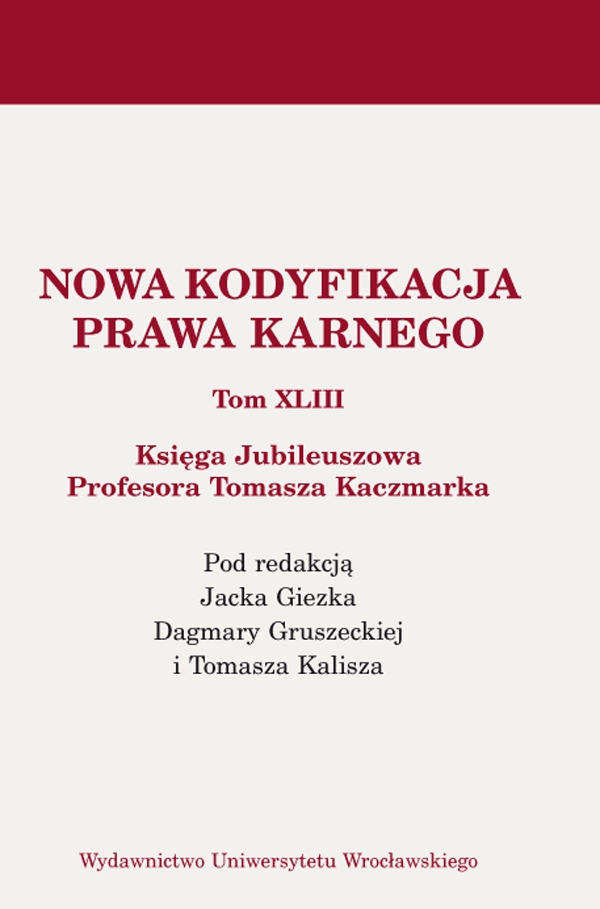

Artykuły

More on the proposal to include in the Criminal Code criteria of objective attribution of effect
Polish jurists writing about criminal law as well as the case-law of the Supreme Court clearly display a growing acceptance of objective effect attribution. In German scholarship this theory has an extensive literature and fairly long history going back to the 1930s R. v. Honig. It owes its subsequent development to C. Roxin as well as numerous authors of German-language studies. In the Polish literature interest in the premises of the so-called Zurechnungslehre began much later, but it now has a substantial group of supporters. Some of them, however, including Prof T. Kaczmarek, oppose the proposal by the Criminal Law Codification Commission to introduce into the Criminal Code regulations indicating the need to apply the criteria of objective attribution of effect when determining whether a prohibited act is an act with criminal consequences. These authors point out that the catalogue of normative grounds for effect attribution is still debatable and the explanation of the criteria of objective effect attribution should better be left to jurists and case-law. Indeed, the German literature is far from any uniformity in the catalogue of criteria of objective effect attribution, with some authors rejecting objective attribution and looking for other concepts. This does not mean that these authors question the need to apply normative criteria when determining the causation of effect described in criminal law. However, the situation is different when it comes to Polish jurists and case-law. Opponents of objective effect attribution often highlight the advantages of applying the “simple” and “reliable” theory of equivalence of conditions and assume that the scope of necessary conditions may then be limited by the principle of guilt. Such a stance does not only denote a rejection of the assumption of objective eff ect attribution. It also fails to include conclusions stemming from other important concepts from the history of criminal law e.g. From studies conducted by K. Engisch or H. Welzl. At the same time it denotes a challenge to the findings from the now commonly accepted theory of norms and leads to a situation in which a court verdict sends a wrong message about the legal opinion on the wrongfulness of the analysed act. It would, therefore, seem useful to include in the Criminal Code a regulation which, without specifying in detail the various criteria of objective effect attribution, would point to the need to carry out a normative selection of causal links. Such a role could be played by a concise norm drawing on the so-called basic formula of objective attribution, a norm well-known to jurists.